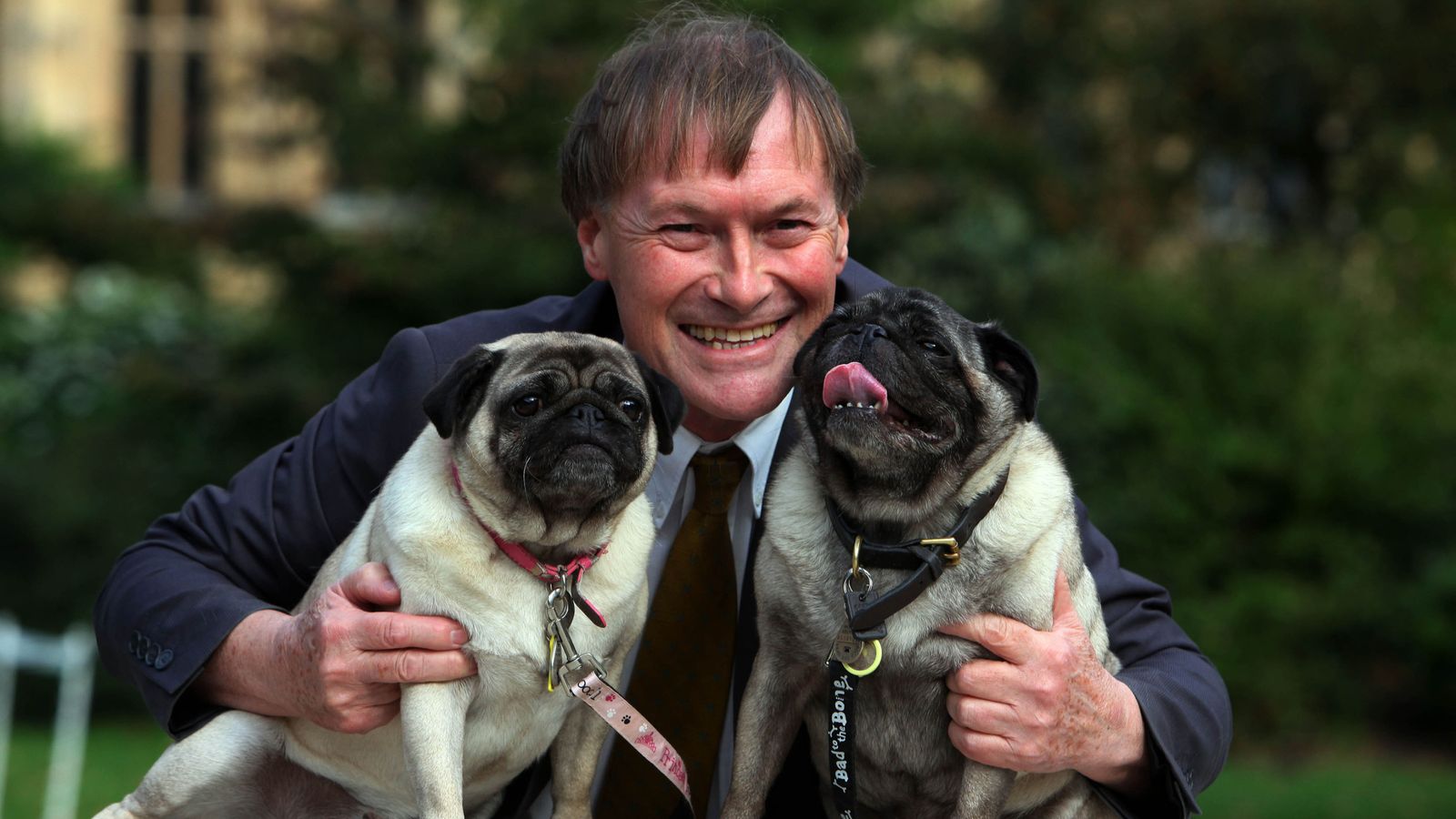There is a reason why the tributes today to Sir David Amess from all parts of the political system were so fulsome – he was different from many of the MPs most people see more regularly on the television screen.
Across the almost four decades he spent representing two different seats in south Essex, he barely left the backbenches, reaching only the lowest rung of the ministerial ladder as a PPS, or bag carrier.
But – unusually – friends have told Sky News today that never troubled him. He was not on the TV to rise up the ministerial ranks – he was comfortable in his job as an MP, always “effervescent”.
Live updates: Man arrested on suspicion of murder after Conservative MP stabbed to death
For he pursued a different path as an MP from those who seek either limelight or ministerial preferment. Instead Sir David revelled in his role as constituency MP, working out how to advance the interests of his constituents from outside government by using the levers of power in the House of Commons.
He was by turn serious and a showman with a purpose.
Sir David Amess death: Priti Patel orders immediate police review of MPs’ security arrangements
David Amess tributes: MP was a ‘great common sense politician and formidable campaigner’
Sir David Amess obituary: From ‘humble’ East End beginnings to 38-year career as animal-loving MP
Please use Chrome browser for a more accessible video player
More than anything else, that meant building alliances across the Commons to get changes he cared about on the statute books.
Whether it was animal welfare legislation such as the Pet Animals Bill in 1990, abortion legislation in 1996 and the Warm Homes Bill in 2000, all required working with Labour and others to get the changes he wanted.
Please use Chrome browser for a more accessible video player
He was someone who younger MPs turned to for advice on how to make things happen in the Commons.
His reply was twofold. For him helping improve the lives of constituents not only meant understanding the inner working of the Commons – he sat on multiple committees doing the often grinding work of approving legislation – but it was also about understanding that politics involves convincing people to join forces, something he did not only through argument but through charm, wit, showmanship and kindness.
Political divisions would not stop him from displaying those characteristics.
That is why today’s tributes are special – because for many in the Commons who knew him for 38 years, he too was special.






















